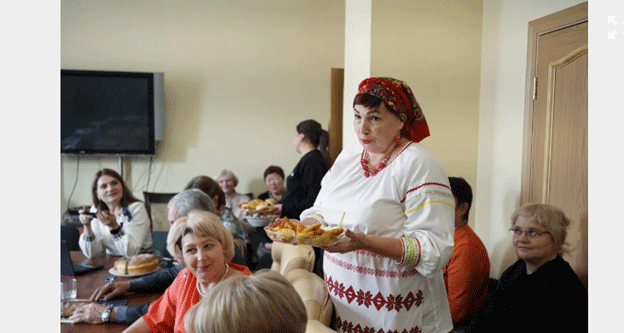The Irkutsk region recently concluded an ambitious pilot project aimed at supporting large families in rural areas by providing elite and super-elite potato seed stock. This collaborative effort was led by the Irkutsk Regional Organization of the Russian Union of Rural Women and the Federal State Budgetary Institution (FSBI) “Rosselkhozcenter.” In this project, 15 families across three districts—Usolsky, Zalarinsky, and Alarsky—grew potatoes from high-quality seeds developed using in vitro methods. This project holds significant social value, as it addresses food security and quality issues for families in need.
The Russian Union of Rural Women is well-established in promoting agricultural development, and the organization celebrates its 20th anniversary next year. The union regularly collaborates with government officials and business representatives to support agricultural initiatives and address local needs. Marina Kozharina, First Deputy Minister of Agriculture of the Irkutsk Region, and representatives from various local organizations have supported the union’s recent projects aimed at rural development and self-sufficiency. The program for comprehensive rural development, for example, has allocated approximately 2.3 billion rubles this year—around 1 billion rubles from federal funds and the remaining portion from regional budgets.
As part of the 2024 rural development program, 150 infrastructure projects were initiated across 60 municipalities in the Irkutsk region. This includes the construction of roads and houses, which benefits rural families and supports agriculture by improving living conditions. Schools, housing for social sector employees, and upgraded roads have all been developed under this program. The overall vision is to ensure that rural infrastructure can support and retain workers in agricultural and social services, thus fostering long-term stability in these communities.
Challenges with Seed Quality and the Role of the Pilot Project
Potato seed quality in Irkutsk’s private sector has faced ongoing issues, with local farmers often relying on uncertified seeds. This practice, known as “pocket” seed production, exacerbates the spread of pathogens, contributing to diseases such as late blight (phytophthora) and affecting crop health. Aware of these issues, the Rosselkhozcenter established a laboratory dedicated to micropropagation of potato seeds, collaborating with research institutes to provide better seed stock.
As part of the pilot project, 15 families received 15 kg of elite potato seed varieties free of charge, along with expert guidance on cultivation methods. These families, many with multiple children, became the core beneficiaries. According to Anatoly Kutuzov, head of the Seed Production Department at the Irkutsk branch of Rosselkhozcenter, the goal is to provide high-quality, certified seed varieties that offer both disease resistance and good yields.
Successful Results and Community Impact
Initial results from the pilot project have been encouraging. In Zalarinsky and Alarsky districts, where the elite potatoes were planted, families reported robust yields, with up to 15 large tubers per plant. The participating families noted that these elite potatoes outperformed traditional seed stocks in terms of size, health, and taste. This pilot project even included taste testing, where dishes like “draniki” (potato pancakes) and bread made from the elite potatoes were enjoyed by community members.
Beyond its success in potato quality, the project highlighted the community benefits of sharing knowledge and resources. As noted by Lyudmila Kaftanogova, head of the Union of Rural Women’s Alarsky branch, the experimental crops stood out in terms of appearance and quality, reinforcing the importance of certified seed varieties for sustainable potato farming. Families who participated in the project even shared their seeds with neighbors, effectively expanding the project’s reach.
Nina Suvorova, leader of the Irkutsk branch of the Russian Union of Rural Women, emphasized the social impact of the project. The focus on large families and under-resourced households aligned with national food security priorities. As Russian President Vladimir Putin has pointed out, there is a pressing need for advancements in domestic seed production and breeding. This project, Suvorova noted, represents a small but important contribution toward that goal.
The elite potato pilot project in Irkutsk has not only shown the benefits of using high-quality seeds but also underscored the importance of community-centered agricultural programs. By providing large rural families with disease-resistant, high-yield potatoes, this initiative contributes to food security, rural self-sufficiency, and the reduction of dependency on uncertified seeds. With further funding, this program could expand to reach more families, supporting the long-term goal of rural development and sustainable agriculture in the region.







